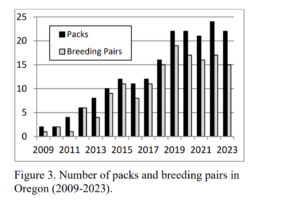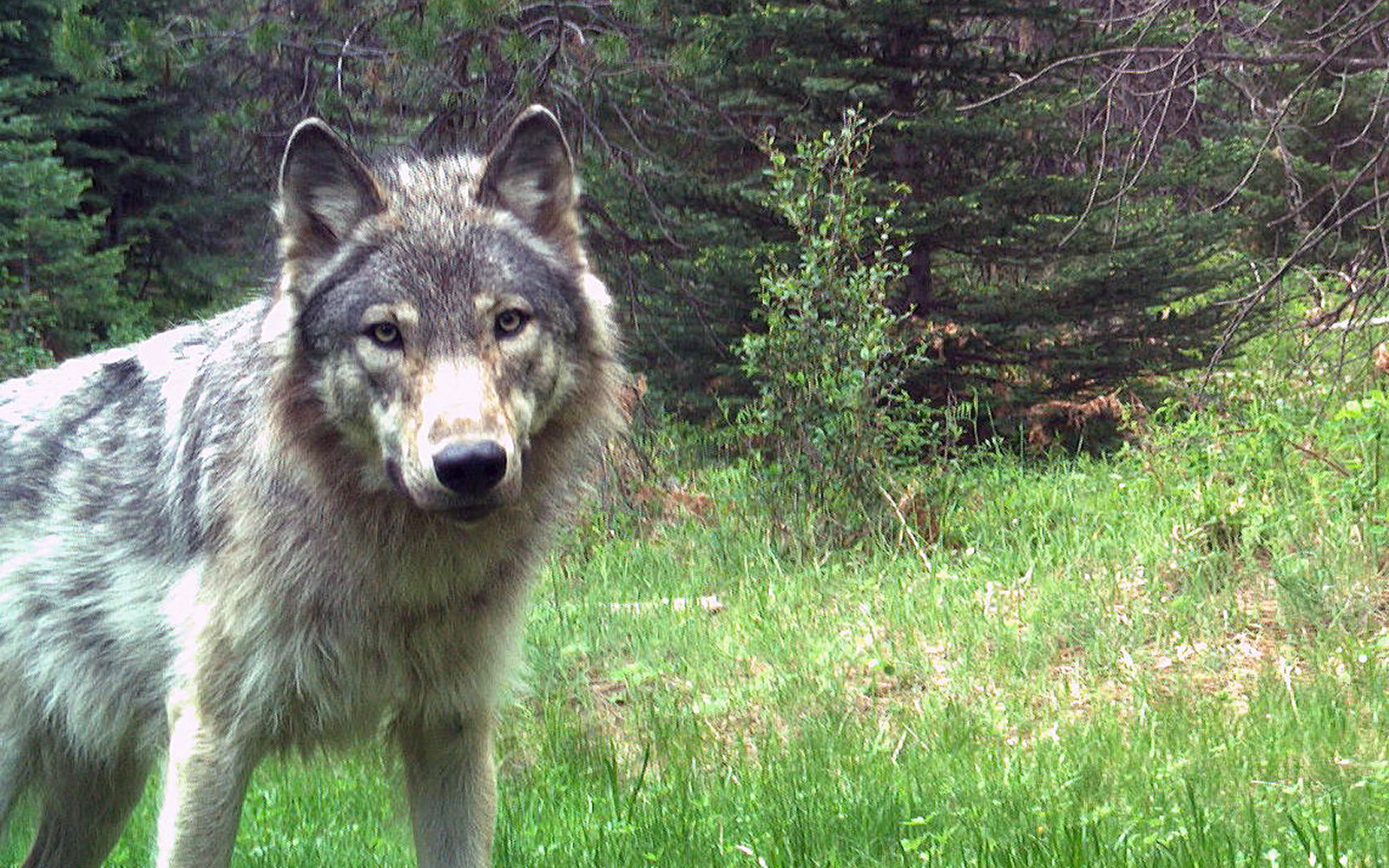FOR IMMEDIATE RELEASE
April 12, 2024
Contact:
Bethany Cotton, bethany@cascwild.org, 503.327.4923
State’s Wolf Recovery Threatened by Poaching, Agency Authorized Killings
Eugene, OR — Today the Oregon Department of Fish and Wildlife (ODFW) revealed Oregon’s wolf population did not grow in 2023. The stagnation in the wolf population marks the worst year for wolves in Oregon since the species began returning to the state in 2008 after decades of absence. This concerning news for Oregon wolves caps a multi-year trend of very low population growth: the 2022 minimum wolf count was 178, just three wolves more than the 2021 year-end count of 175, which itself was just two wolves more than 2020’s minimum count of 173. Oregon’s wolf population has grown less than 3% in the past four year combined.
Over 20% of the state’s wolf population died in a single year: at least 36 wolves were confirmed dead in 2023, 33 of which were human caused. Of those 33, 16 were killings were authorized by ODFW, four wolves were hit by cars, one was lawfully shot by a hunter, and a dozen were poached: 10 poisoned in multiple incidents and two separate shootings. The stagnant wolf population and the sharp increase in wolf deaths are cause for great concern in a state with significant suitable – yet unoccupied – wolf habitat. Also of concern, the total number of wolf packs shrunk from 24 in 2022 to 22 in 2023, and western Oregon’s nascent wolf population lost a breeding female to poaching.
“Oregon is facing a toxic mix of threats to our wolf population: a poaching epidemic and unreasonably high levels of agency authorized killings,” said Bethany Cotton, conservation director with Cascadia Wildlands. “To ensure Oregon meets our wolf conservation and recovery goals, we need to reign in both poaching and agency-approved killings.”
Among the limited good news in the report, confirmed and probable livestock predations by wolves dropped in 2023. Despite this positive news, ODFW authorized killing 16 wolves in 2023, double any previous year. All requests for compensation for probable or confirmed livestock predation by wolves were paid in full through the state compensation program. Additionally, 84% of the funds allocated through the compensation fund were used for non-lethal coexistence tools.
“ODFW needs to do more to protect Oregon’s small wolf population: The agency can start by not being one of the two primary causes of the population’s failure to grow. Until poaching is brought under control and Oregon’s wolf population increases for several years, the agency needs to stop authorizing wolf killings and concentrate on implementing proven effective coexistence tools,” said Cotton.
Wolves in the western third of Oregon enjoy federal Endangered Species Act protections and are primarily managed by the federal Fish and Wildlife Service. The Fish and Wildlife Service is investigating the killing of four wolves in western Oregon in 2023, one shooting and three deaths by poison.

In December 2023, Colorado Parks and Wildlife live captured and transferred 10 Oregon wolves to Colorado. While this transfer is positive conservation news for Colorado, removing 10 of Oregon’s young, healthy wolves further undermines Oregon’s wolf recovery. Those wolves would otherwise have been likely to disperse to create new packs and could have occupied areas of appropriate wolf habitat where the animals are still absent.
###
Background:
Oregon wolves have had critical protections removed and then restored in recent years. The Trump administration stripped federal Endangered Species Act protections from gray wolves across most of the country in January 2021, including in western Oregon. In February 2022, a federal court restored those protections, agreeing with plaintiffs, including Cascadia Wildlands, that removal of federal protections was not grounded in science.
Since 2011 wolves in the eastern third of Oregon have not enjoyed federal protections and have been managed by the state. In 2015, the state Fish and Wildlife Commission prematurely stripped wolves of state endangered species act protections.

